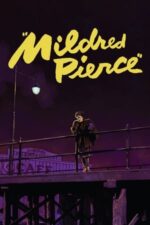More Than Just Sand and Surf: The Loaded Symbolism of the Beach House in Cinema
Okay, let’s talk about beach houses. We all picture them, right? Sun-drenched decks, crashing waves, that breezy, carefree vibe… But when a beach house shows up in a film, it's rarely just about relaxation and vacation vibes. It’s often a pressure cooker, a stage for secrets, or a symbol of something much deeper than just a pretty view.
Think about it: the beach house is inherently liminal – it sits between land and sea, civilization and wilderness. That ambiguity lends itself beautifully to storytelling. It's a place of transition, of escape, but also potentially of isolation. And that’s where things get interesting.
Take Female on the Beach for example. The idyllic setting is immediately undercut by an atmosphere of suspicion and veiled threats. This isn’t your breezy summer rental; it’s a backdrop to a mystery, a place where secrets are buried just beneath the surface – much like driftwood half-submerged in the sand. It's fascinating how that seemingly innocuous location becomes so intrinsically linked with dread.
The idea of a beach house as a site of hidden truths continues in Messiah of Evil. The Point Dume setting isn’t just picturesque; it’s actively sinister, shrouded in an unsettling secrecy that mirrors the protagonist’s desperate search for her father. It's a place where reality bends and darkness thrives – far removed from any postcard image of coastal bliss.
But not all beach house narratives are steeped in mystery or horror. Mr. Hobbs Takes a Vacation offers a more comedic, but equally insightful, take. The dilapidated state of the promised paradise immediately signals that this vacation won't be the restorative escape Roger envisioned. It’s a microcosm of family dysfunction – the crumbling house reflecting the cracks within their relationships. I remember once planning a family trip to a cabin in the woods; it was supposed to be idyllic, but ended up being a hilarious (and slightly stressful) lesson in managing expectations!
Even films like Summer of '42, while lighter in tone, use the beach house setting to highlight the fragility of happiness against the backdrop of war. It’s a place of fleeting joy and youthful romance, knowing that the idyllic summer will inevitably be disrupted by larger forces.
Ultimately, the beach house in film is more than just a location; it's a powerful symbol. Whether it represents hidden danger, familial discord, or the bittersweet nature of time, these cinematic havens offer a fascinating lens through which to explore complex themes about human connection and the search for belonging. So next time you see a beach house on screen, look beyond the sand and surf – there’s likely a whole lot more going on beneath the surface.







































